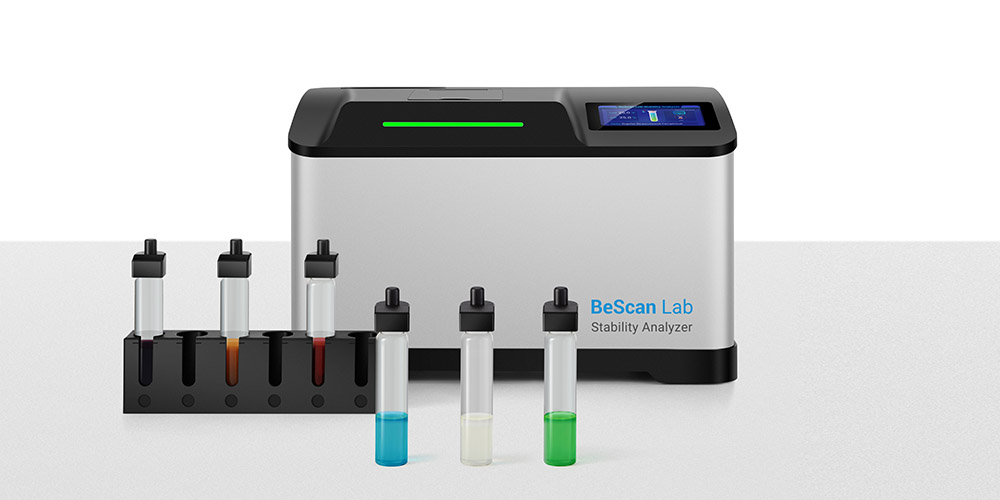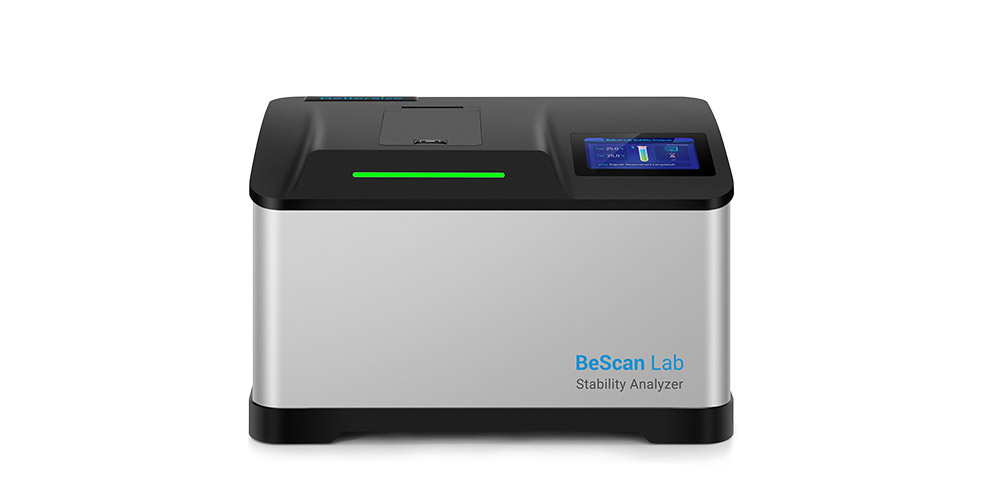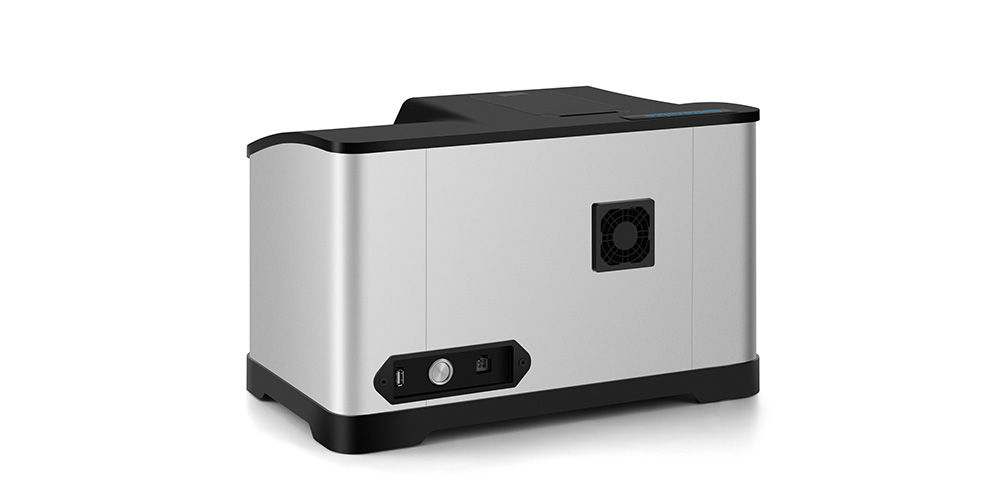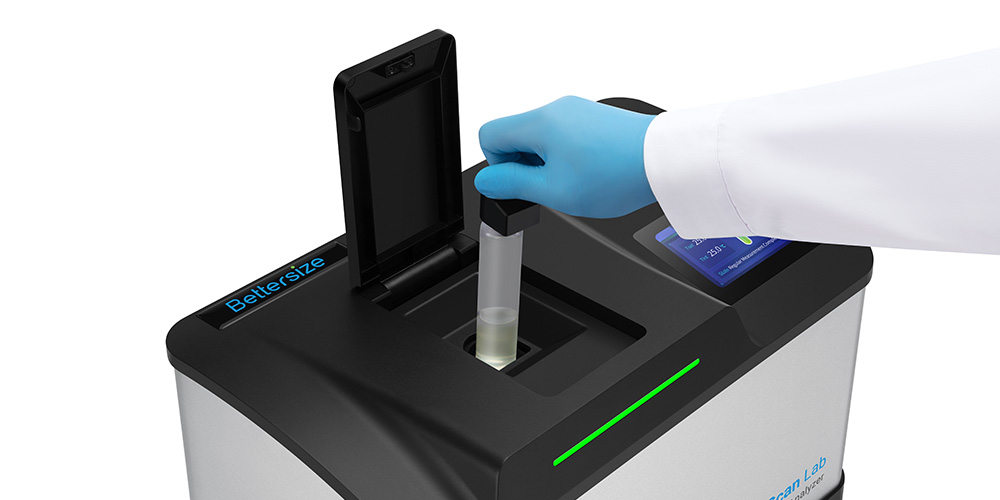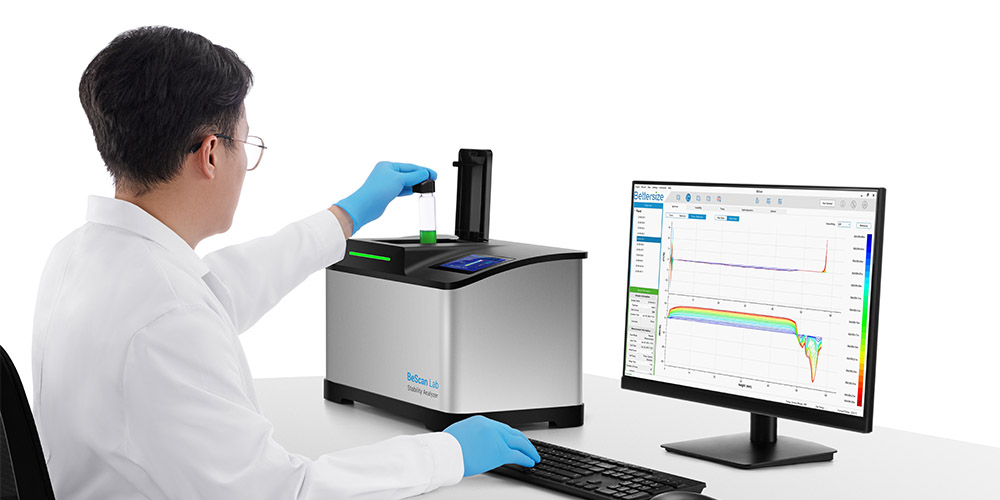Description
BeScan Lab, the versatile, sensitive, and reliable stability analyzer based on Static Multiple Light Scattering (SMLS) technology, is widely used in the formulation development and product quality control. It accommodates a wide range of sample concentrations up to 95% v/v and types such as emulsions, suspensions, and foams, with temperature scanning capabilities reaching up to 80 °C. BeScan Lab provides both qualitative analysis and quantification of destabilization, helping you monitor long-term product stability and achieve optimal shelf life.
Features & Benefits
Non-destructive stability analysis for various dispersions
- Non-contact, non-dilution, non-shearing
- Sample volume fraction up to 95%
- Particle size measurement range from 0.01 to 1,000 μm
Fast and direct stability measurement
- The high-performance LED and ultra-sensitive detectors, with a 20-micron scan step, allow real-time monitoring and capture of subtle variations 200 times faster than the naked eye
- Temperature control up to 80 °C to accelerate destabilization
Qualitative and quantitative stability results
- Identification of various unstable phenomena, such as creaming, sedimentation, flocculation, coalescence, and phase separation
- Quantification of destabilizations and study of kinetics
What BeScan Lab Provides?
- lnstability index (lus)
- Mean particle size
- Hydrodynamic analysis
- Radar chart for regional lus
- Temperature trend testing
- Particle migration rate
Why You Need It?
From Raw Materials to Finish
BeScan Lab plays a crucial role throughout the product lifecycle, supporting formulation, production, and pre-use stages. It enables formulation optimization, quality control during manufacturing, investigation into optimal transportation and storage conditions, and research on redispersibility
1. Research and development
Ensure excellent dispersibility and uniformity through raw material selection.
2. Production and quality control
Optimize production processes, including method, time, and temperature, to enhance efficiency.
3. Storage and transportation
Evaluate formulation stability under varying environmental conditions, observing destabilization, and predict shelf life.
4. Pre-use treatment
Study the reversibility of destabilization and compliance with usage standards.
Advanced Measurement Principle
Static Multiple Light Scattering (SMLS) is employed to characterize the stability of dispersions. Within BeScan Lab, a setup comprising two detectors and an LED light source ascends along the sample cell to conduct sample scanning. In the case of concentrated samples, the backward detector is employed to detect backscattered signals, while for diluted samples, the forward detector is utilized to detect transmitted signals.
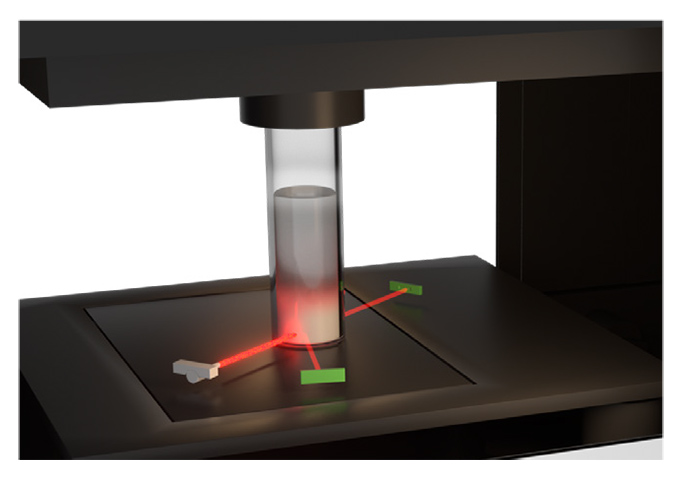
Versatile Applications
- Agrochemicals
Evaluate the stability of pesticide formulations to predict shelf life and ensure the consistent performance of suspension systems.
- Battery and Energy
Test the stability of electrode materials and electrolytes, crucial for enhancing battery performance and lifespan.
- Ceramics
Analyze the stability of ceramic slurries and monitor the stability of glazes and pigments, ensuring reliable production processes.
- Home and Personal Care
Ensure product stability in cosmetics, lotions, creams, and other formulations for reliable performance.
- Food and Beverage
Test the stability of food products, from milk to sauces, and assess the dispersibility of food powders to maintain product quality.
- Petrochemicals
Monitor and ensure the stability of oil products, providing critical insights into the long-term performance of lubricants and the behavior of polymers in oil.
- Pharmaceuticals
Conduct stability testing for medicinal formulations, assess long-term drug stability, and analyze biomacromolecule aggregation to ensure product efficacy.
- Paints, Coatings and Inks
Measure the stability of coatings and inks, and evaluate the dispersion of pigments and dyes for uniform product quality.

